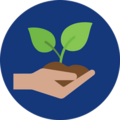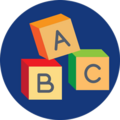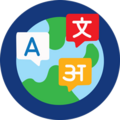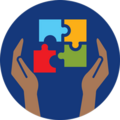Show Notes
In Social Studies, our core—the essence of what we do—is to develop informed and engaged citizens. We want students that not only have content or disciplinary knowledge of the world around them, but the skills of how to apply that knowledge and the desire to do so.
As supported by our recent change in the Michigan social studies standards in 2019, students must be exposed to a more comprehensive and inclusive history. If we value that ALL of our students feel connected and engaged, they need to hear and see history from ALL perspectives. They also need to be asked to examine the ongoing impact of history on today's world, and to look ahead to tomorrow. Simply put: Students can't analyze and have meaningful conversations if they do not have access to the full story. As Dr. Michael F. Rice, Michigan's state superintendent, put it,
"Our children deserve to learn about the full breadth of U.S. and world history. As educators, we have not just the right, but the responsibility, to teach them this full breadth of history, including race, racism, sexism, and other difficult and challenging subjects."
Join us on a journey of understanding as we discuss the importance of topics with:
- Scott Bentley, Park Superintendent of the River Raisin National Battlefield Park;
- The Honorable Chief Billy Friend of the Wyandotte Nation; and
- The Honorable Chief Glenna Wallace of the Eastern Shawnee Nation.
Length - 28 minutes
Resources
For free curriculum resources, call the battlefield park at 734-243-7136
Transcript
[THEME MUSIC]
(Announcer): Welcome to Getting To The Core, a Wayne County Regional Service Agency podcast. We invite you to join us as we discuss a variety of educational topics, And hopefully plant a few seeds that get to the core of our mission, "Leading, Learning for All."
David Hales: Welcome to getting to the core. My name is David Hales and I'm the K-12 Social Studies Consultant at the Wayne Regional Educational Service Agency, located in Wayne, Michigan. David Hales: I'm. Both excited and honored to be discussing some very important work going on in social studies education right now. Around the issue of providing a more comprehensive and inclusive history for our K-12 students. Specifically, I'd like to talk with you about an ongoing initiative with just such a focus entitled “Journey Towards Understanding", and I have some very special guests today to talk about that journey, what it means to them, and the impact it has had in social studies, curriculum, and instruction. Today, I'm joined by Scott Bentley, Park Superintendent of the River Raisin National Battlefield Park, located in Monroe, Michigan. Thank you for joining me today, Scott.
Scott Bentley: My privilege. Thank you.
David Hales: I'm also joined by the Honorable Chief Billy Friend of the Wyandotte Nation. Welcome, Chief Billy.
Billy Friend: Thank you. Great to be here.
David Hales: I would also like to welcome the honorable Chief Glenna Wallace of the Eastern Shawnee nation.
Glenna Wallace: Thank you for the opportunity to be here.
David Hales: Both nations are located in Ottawa County, Oklahoma, which is in northeast Oklahoma, near the Missouri and Kansas borders. Both tribal nations once had villages in southeast Michigan, in Ohio. I'm glad all of you are able to join us here today. To get us started, I'd like to first focus on what does it actually mean to build a more comprehensive and inclusive history for students? What is it? And honestly, why does it matter? In Social Studies, our core, the essence of what we do is to develop informed and engaged citizens. We want students that not only have content or disciplinary knowledge of the world around them, But the skills of how to apply that knowledge and the desire to do so. David Hales: This is a challenging task, but it's one worthy of future citizens. That means, and that this is supported by our recent change in the Michigan social studies standards in two thousand nineteen, that students are deserving of being exposed to a more comprehensive and inclusive history. If we value that all of our students feel connected and engaged, They need to hear and see history from all perspectives, and be asked to examine the ongoing impact of history on today's world, and to look ahead to tomorrow. Simply put students can't analyze and have meaningful conversations if they do not have access to the full story.
David Hales: A more complete picture. Again, this is not only supported by the Michigan State standards from two thousand nineteen but has been recently supported by our State Superintendent of schools, Dr. Rice, who said, Quote: "Our children deserve to learn about the full breadth of us and world As educators, we have not just the right, but the responsibility, to teach them this full breadth of history, including race, racism, sexism, and other difficult and challenging subjects." End Quote. The reality is, though there just aren't enough educational resources to fill this crucial need. That's where the journey towards understanding comes into play. David Hales: I'd like to reintroduce Scott Bentley at this time. Scott is the Park Superintendent, at the River Raisin National Battlefield Park in Monroe, Michigan. Scott can you tell us a little bit of the history of the journey towards understanding. How did it come to be? And how it connects to the desire for providing a more comprehensive and inclusive history for our students? Scott.
Scott Bentley: Thank you, David. And yeah, actually, it's very much connected to the same thing you were just talking about, which is an understanding of history from diverse viewpoints in multiple perspectives. I arrived here at the raising National Battlefield Park in two thousand and eleven, and traveled all over the country with the National Park service before that, and thought I understood U.S. history really well, Then I had the privilege of meeting folks like the Honorable Chief Billy Friend and the Honorable Chief Glenna Wallace and many others who challenged a little bit of how the Park story was being told, and and asked us to look deeper into the significance of the River Raisin National Battlefield Park. And... so we did that. We took that challenge, and I began to examine history and find primary documents that told a very different view than I was taught by having grown up here in Michigan myself. So I learned how little I really knew about the history of River Raison National Battlefield Park, as well as the establishment of the United States in the growth of where we are today. And so the journey towards understanding came out of that, And, We asked tribal nations if they would be be willing to come alongside us and learn the history, and be able to accurately tell that history from the viewpoints of each tribe, and of course the battlefield was the largest collection of native nations to gather to stop US Colonization during the war of 1812 and tribes had to choose sides. And, many tribes were on both sides of that conflict. But, Ultimately all of the nations that we're here have a different story in a different perspective. And so to understand that we have to truly you partner with and go alongside each individual tribe, as we learn that history together.
David Hales: Well, thank you. You know a crucial part of providing a more comprehensive and inclusive history for students, is in recognizing the importance of authentic voices telling their story. I'd like to turn to Chief Billy and Chief Glenna, now and ask them what the journey towards understanding has meant to them. And why do they feel it’s an important initiative for all students. Chief Billy can you start us off?
Billy Friend: Well, yeah, And first of all, I mean, uh, you know, I always like to say, you know, thank the National Park Service and and Scott Bentley for for including us, you know, in the beginning of the park stages there and getting us involved. But the journey of understanding for us, you know for many of us. I don't. I don't say our history was dead. Our history had laid dormant for years, and you know my generation growing up, we did not have the opportunity to really learn about our ancestors, about our traditions and our culture. And so, you know, the journey of understanding was very important part of us going back, and basically reconnecting with our history and uncovering, and not only uncovering but recovering. Ah, you know the history that that belonged to the Wyandotte nation, and Wyandotte people and so, that journey of understanding. Our participants range from very young to some of our elders that went on that trip, and it was a life-changing experience for each one of them in different ways. You know for our elders, you know who grew up, maybe hearing the stories of our ancestors, you know, for them to be able to go and walk on our former homelands and make connection to those former historical sites, you know. That was a very, you know, a very moving moment for them. Ah, at that time, and so our younger people, you know, for having them for them to be able to plant a seed in their life, you know, to be able to make them want to know more about where they came from, and you know who they who their ancestors were and their history, you know. I think it was very important. So really the journey was just a very integral part of us in the project that we've been working on, of reclaiming our history and making that history and making that knowledge available to all of our tribal citizens who want to access it.
David Hales: Thank you. Chief Billy. Chief Glenna?
Glenna Wallace: I agree with what you've… has been said, I might go beyond that. I oftentimes say that to people don't talk about us, talk with us, and I think those two propositions changes everything, because very few people have talked with us. I also think that I certainly agree with Billy in that the life of being a Native American and having been forcibly removed from another State long away, and coming here, that life was so hard for so long, that you have to spend time just having time to grow gardens, time to grow food, time to make a living, time to simply exist. And uh, In Maslov's Hierarchy of Needs, studying history does not come to the top there, and so oftentimes we ourselves ah did not know our own history, and when we were limited to what we knew that had been written, and I give the example of in my particular tribe, the Eastern Shawnee tribe of Oklahoma, We have done a terrible job of maintaining our history. And so we received an ANA grant to research our history, and we made the deliberate choice to start with the year 1832, because that was the year that we were forcibly removed from the Ohio Valley and from our reservation there. So, we deliberately started with 1832, when we came to Indian territory, and worked forward. So from one thousand eight hundred and thirty-two up until two thousand and eighteen whenever our Grant ended, and in that time we did not even know how many chiefs we had had who those chiefs were, how long their terms were, what had happened during those times, and it never occurred to us that we were going to have to go back beyond one thousand eight hundred and thirty-two, because that history was inaccurate. So, we have done our one thousand eight hundred and thirty-two forward. Know who our chiefs are, but now find so many inaccuracies of what that time was before, and never did it occur to me that we were going to have to challenge that and say something about it. So, when we go on this journey toward understanding, it is exactly that it's a journey, it doesn't mean that when we finish one of these trips that we have learned everything. We've learned that there's a lot we didn't know, and we've learned that we want to continue to learn, and I think that's true of the educators. And I think that's true of the people who go on the trip, and so that certainly has to be true for students in classrooms who have never had this experience. So, it's spreading this information, and making our circle larger and larger and more inclusive, so that people can hear. And I say, I emphasize, talk with us. Now that requires time. Chief Billy has to be willing to give of his time to participate, in programs like this. I have to be willing to give of my time. Not only do we give of our time in examples like this, but we have to be willing to return to Michigan, return to Ohio, meet with people there, meet with organizations there, and share our viewpoint and listen to them, and see if we can't come to a better understanding, a more accurate, a more thorough understanding, more encompassing understanding. So, I applaud Scott, Bentley, and the National Park there, the Raisin for their undertakings. I applaud you as an educator who is leading and ah! Being able to get educators to go on this this trip, so that they can experience for themselves and hear for themselves and interact with us so that we can have better understanding on both sides.
David Hales: Thank you Chief Glenna. Thank you to you both. Scott, can you talk a little bit about the educational materials that have been generated as a result of the journey towards understanding it. And how will educators, or how can educators access these materials?
Scott Bentley: and again, I want to thank Chief Billy and Chief Glenna for joining us again today, as well. And first of all, preface what we have created in partnership with the teachers and the tribal nations wouldn't have been possible without the generosity of the nation’s being willing to share openly their history, and it's a complex history, and each tribe's history is very different. And so, we're very excited we've created since the journey began. Well, the pilot journey was in 2014, that the journey with the teachers where curriculum began to be developed was in two thousand and fifteen, and since that time we have over thirty, nine lesson plans that we've created that are connected to Michigan content expectations and by grade level. And so, there are twelve in the elementary range, primarily third through fifth grade, and then middle school A lot of that is eighth grade, but all of the middle school and then eight lesson plans there and then we have nineteen different lesson plans in the high school level, and so those are all available. There's a lot of different topics again. It all has to do with what are the students studying at that particular grade level? And so, you know, for an elementary school teacher, they might be learning about canoes in traditional canoe-making, a traditional living in the Great Lakes for the tribal nations which is diverse, By the way, you know, there were multiple language groups in different tribes. And so you have those things that are more complex than you might think. And then you get into the high school level where you talk about you, the US, Indian laws and policy, civilization laws, boarding schools, forced removals, relocations, assimilations. And so, the topics vary, you know, from younger to older students and folks can access those by calling the battlefield at 734-243-7136 and we can get those out free of charge to teachers electronically. And then we will also have a link available through the Monroe County Intermediate School district, where they'll be able to download those materials as well, and we can provide that information out to them. In addition to the lesson plans, you know, COVID drove us in a little bit different direction as well. And so we've learned the importance of virtual learning and supporting teachers in the classroom in that way. And we've also, through the journey towards understanding, been able to produce and finalize six educational films. And again, the topics vary, and we can get those to teachers as well. And then we also have multiple films that we're in the process of finalizing as well for teachers, and all of these can be used in lessons in the whole framework for all the videos that we've done just like the lesson plans it's driven by teachers. And so, lesson plans themselves are created by teachers for teachers. After experiencing the journeys uh in the videos or a similar way. So we encourage folks to use it, uh, and to also connect in with the Wayne County Regional Educational Services Agency and find out how you can participate as a teacher in future journey towards understandings, because they truly do change your life, and maybe in a few minutes, David, I can reach some of the quotes from this year's journey from some teachers, and you'll have that that you can use or not use if you want to.
David Hales: Certainly. Thank you. And again, to speak to that information about how to access those materials will make available for people through the podcast as well. Can you... Can you talk just for a quick minute, Scott, about future journeys?
Scott Bentley: So, the journey towards understanding the, of course, the concept originated back in 2014, when after three years, I finally came to the realization that that we had to go with each different Tribe to understand the history. And at that time, I thought well . . .simplistically, in my mind, we could do this. Ah, you know, by grouping tribes together, so we could do all the Wyandotte nations you know together, and all the Shawnee nations together, and understand history and quickly, Chief Billy and others taught me that well, actually, not all of the Wyandotte nations are the same. Not all of the Shawnee tribes and nations are the same. And so that went into a complex... you'll look at each individual tribe as a separate nation of separate people. And so what that led to is what I thought would be a seventeen to twenty year journey process turned into close to a perpetual journey, and I think Chief Glenna said it the best, you know. It's the beginning, because we do each of these journeys. And, this year's was another great example. I learned a ton! You know I've been doing this since two thousand and fourteen, and every single year I learned a tremendous amount. And so, in the the 2022 journey, we began a process of learning and growing, and we'll continue that now, as we move forward. And so, each year we we work with a different tribe or a nation, you know, or topic that might involve multiple tribes. And so you in the future, you all. It's always different. Every year will be a very different experience. The interesting thing is, the outcome is always phenomenal. It's life changing, and frequently, every without an exception, every single journey towards understanding. We've had numerous teachers say that they've been teaching history for many years, and now they're going to begin teaching history the right way. And so, it really is opening up a perspective, multiple perspectives that we haven't been taught, and I include myself in that. I grew up here in Michigan. Thought again, I understood the history, and now realize how little I understand the history.
David Hales: Thanks Scott, that that's really that's Powerful. I want to ask a chief Glenna and Chief Billy, if you have any, follow up comments, or you know, looking to the future.
Glenna Wallace: Well, I would just say that I thoroughly agree with Scott that there were six of our tribal people who attended this journey, and every one of them has said, oh, I want to go again next year. It doesn't matter what tribe it is I learn, and I want to go again next year. And, he starts in the correct way. Ah, you know he started by contact with me, and saying, I don't know that much about your tribe. What are your resources? What are the materials that you use. Who would you recommend? What people today, and what books, what sources would you recommend? And so, it's a learning experience for Scott, who's done this with other tribes as well, but he certainly didn't know. We were fortunate that a man that we just lost, who passed away just recently had written the book, our sorrowful journey, and it prepared the journals to different people who reported our journey, and we were able to ... Scott was able to take that and our return home. The route we took was totally different from the root that we went, so that we were able to see more of Ohio and more of the other states where we were forced to, and we our people walked, so we were able to go to the exact places where they had stopped, and we were able to read directly from the journals what was happening. And so it says, though we were there in person. Certainly, it wasn't as intense for us, but it was still very emotional, very intense, and it couldn't help but affect you. So not only our people, but those teachers and those people who had worked with this before. And there's just an impact to it that continues. And again, I’m just so thankful for River Raisin being able to finance this to find the funding for it, and the tremendous amount of work that has to take on their part to do. This is just phenomenal.
David Hales: Thank you. It was very powerful. Chief Billy?
Billy Friend: you know. I think there was, a lot of different aspects to talk about. You know. You know one of the things going into the project, you know, is the fact that we wanted both sides of the story told, you know, and for far too long, you know, there was only one side of the story. You know, as they say, that the Victor writes the history according to their own perspective, and I came across an old African proverb here lately, and it says, until the lion learns how to write every story's told, or every story will glorify the hunter, and you know It's kind of like native American History. For far too long, there was only one perspective told, and so you know, to be able to, you know, create educational materials that that you know tell the story from both sides. From the Native American side, and the American side, and let them, you know. Let the person that's reading the history, take their own perspective on that, And, you know, one of the other things that has always taught me about the River Raisin, and you know the funding for the park also included, to tell the story of the aftermath. You know the aftermath of the battle of 1812. Of course, we're still living the aftermath today. You know we're still here, and I think for a lot of people, you know, when they visit the park or they visit these sites, and whether Ohio or Michigan, you know, they think that you know, once we left, we just disappeared. That we're gone, you know, and that's not true today. We're very strong, vibrant sovereign nations that you know, are still, you know, still operating in existence today. The Wyandotte’s, we have over 7,000 tribal citizens and we came to Oklahoma with less than 300. And so, you know our nation has rose again, just like all the other tribes in this area. And so, you know, being able to tell the aftermath of that story. I’ll just share one quick story and end it here. One of the first trips that I took back to Ohio. I took a group of high school and college students, and we're in Wyandotte County, Ohio. We're standing in the in this Museum, Wyandotte County Historical Museum, and the lady that was giving us the tour, pointed up the picture on the wall of a lady named Mother Solomon, one of our ancestors, and she said, pointed the picture and said, that's Mother Solomon. She was the last living Wyandotte, (Billy laughs). So I look around of course, all the kids are looking to me like I thought we were all Wyandotte’s, you know, and so you know we, you know I let the lady know she was the last living Wyandotte in Ohio. You know that came back and was in Ohio. But we're still alive and well today, and I think that's a crucial part of that journey of understanding is, you know, not only it tells our history, but you know that we're still here today. You know, there's still Wyandotte’s, there's still Shawnees and Ottawa’s and Peoria’s and you know we're still alive and well day. and we're continuing on in our cultures and our traditions and bringing those things back.
David Hales: That's an amazing story.
Glenna Wallace: David, may I come in here for just a moment and expand upon that, and say, certainly what Chief Billy is saying is true for all of us. But it not only this journey not only affects those who are on the journey, and who are directly participating, meaning riding on the bus, going from place to place. But the places that we stop at the places in Ohio, the places in Michigan, those people, those institutions, those museums! They are affected as well, and many of them say we've changed such and such because of your being here. We no longer do such and such because of meeting you so it does not affect just the six
Eastern Shawnee's who we are on this bus trip, or the six or seven teachers who went on this. It affects the places where we stop it have had what they thought was the history for quite some time, and they are affected, so it's a ripple effect that just continues to grow and to grow and to grow, and when they willingly ah! Change what they are doing or modify, eliminate some things that they had in the gift shop, saying, This is, we realize this is not appropriate. We haven't had to tell them that. They have come to that realization themselves, and that makes it so much easier for this message to be expanded and go to other people. And so that's what I am exceptionally proud of.
David Hales: That's a really good point. Thank you for lifting that. Thank you to both of you. Thank you to all of the guests. I do want to say to all the listeners that it's. It's been a pleasure to have shared it through the important work that's going on in social studies, in history instruction. We want all students to benefit from the journey towards understanding. Again, by having a more complete and accurate history and a deeper awareness of how it impacts their lives. Today. Educators need quality resources to support this kind of instruction, and it's through initiatives such as journey towards understanding that our partners and with our partners, such as the native nations, the Park Service and Wayne RESA, that we can begin to fill that void. I would like to invite our listeners to visit RESA.net\podcast to view the show notes of this episode, where you'll find more information such as on the materials, contact, information et cetera. Again, I’d like to thank all the guests again, very appreciative and very humbled to have had everyone here today. Thank you. And that, concludes our podcast.
[THEME MUSIC]
(Announcer): Thanks again for listening to "Getting to The Core." To access previous episodes, along with transcripts and additional resources visit RESA.net/podcast.
[MUSIC FADES OUT]








